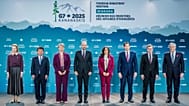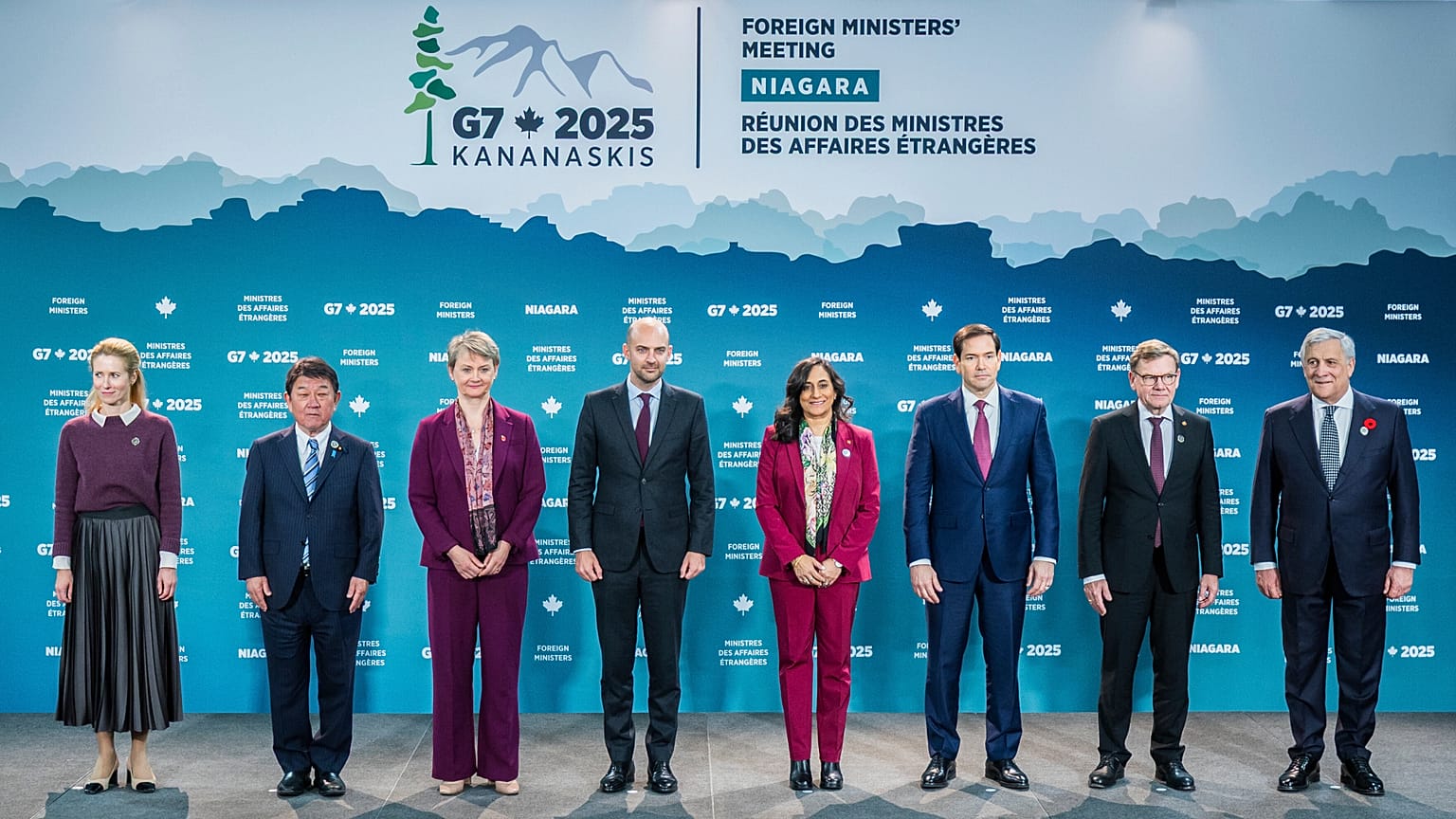Tensions have risen between the US and traditional allies like Canada over defence spending, trade and uncertainty over President Donald Trump's ceasefire plan in Gaza and efforts to end the war in Ukraine.
Canada is hosting the foreign ministers of the Group of Seven industrialised democracies in southern Ontario for talks on defence spending, trade and uncertainty over US President Donald Trump's ceasefire plan in Gaza and efforts to end the Russia-Ukraine war.
Canadian Foreign Minister Anita Anand welcomed US Secretary of State Marco Rubio and their counterparts from Britain, France, Germany, Italy and Japan for the summit held on Tuesday and Wednesday.
EU Foreign Chief Kaja Kallas is also attending, as well as the foreign ministers of Australia, Brazil, India, Saudi Arabia, Mexico, South Korea, South Africa and Ukraine.
"We’re tackling a range of critical issues with one main focus: putting the safety and security of Americans FIRST," Rubio said in a social media post.
Strained relations over Trump's tariffs
Canada's G7 hosting duties this year have been marked by strained relations with its North American neighbour, predominantly over Trump’s imposition of tariffs on Canadian imports.
But the entire bloc of allies is confronting major turbulence over Trump's demands on trade and various proposals to halt worldwide conflicts.
Trump recently ended trade talks with Canada because the Ontario provincial government ran an anti-tariff advertisement in the US that upset him.
Canadian Prime Minister Mark Carney apologised for the ad and said last week that he’s ready to resume trade talks when the Americans are ready.
Anand said she will have a meeting with Rubio but noted that a different minister leads the US trade file. The US president has placed greater priority on addressing his grievances with other nations’ trade policies than on collaboration with G7 allies.
“Every complex relationship has numerous touch points," Anand said. "On the trade file, there is continued work to be done — just as there is work to be done on the numerous touch points outside the trade file, and that’s where Secretary Rubio and I come in because the relationship has to continue across a range of issues."
Anand said Rubio asked her during a breakfast meeting in Washington last month to play a role in bringing countries to the table to ensure that Trump’s Gaza ceasefire plan has longevity, including with a future Gaza reconstruction conference.
Ukraine and Gaza remain priorities
The diplomats will meet with Ukraine's foreign minister early Wednesday. Britain says it will send £13 million to help patch up Ukraine’s energy infrastructure as winter approaches and Russian attacks intensify. The money will go toward repairs to power, heating and water supplies and humanitarian support for Ukrainians.
UK Foreign Secretary Yvette Cooper, who made the announcement before the meeting, said Russian President Vladimir Putin "is trying to plunge Ukraine into darkness and the cold as winter approaches,” but the British support will help keep the lights and heating on.
Canada recently made a similar announcement.
One main point of contention has been defence spending. All G7 members except for Japan are members of NATO, and Trump has demanded that the alliance partners spend 5% of their annual gross domestic product on defence. While a number of countries have agreed, others have not. Among the G7 NATO members, Canada and Italy are furthest from that goal.
Anand said Canada will reach 5% of GDP by 2035.
There have also been G7 disagreements over the Israel-Hamas war in Gaza, with Britain, Canada and France announcing they would recognise a Palestinian state even without a resolution to the conflict. With the Russia-Ukraine war, most G7 members have taken a tougher line on Russia than Trump has.















